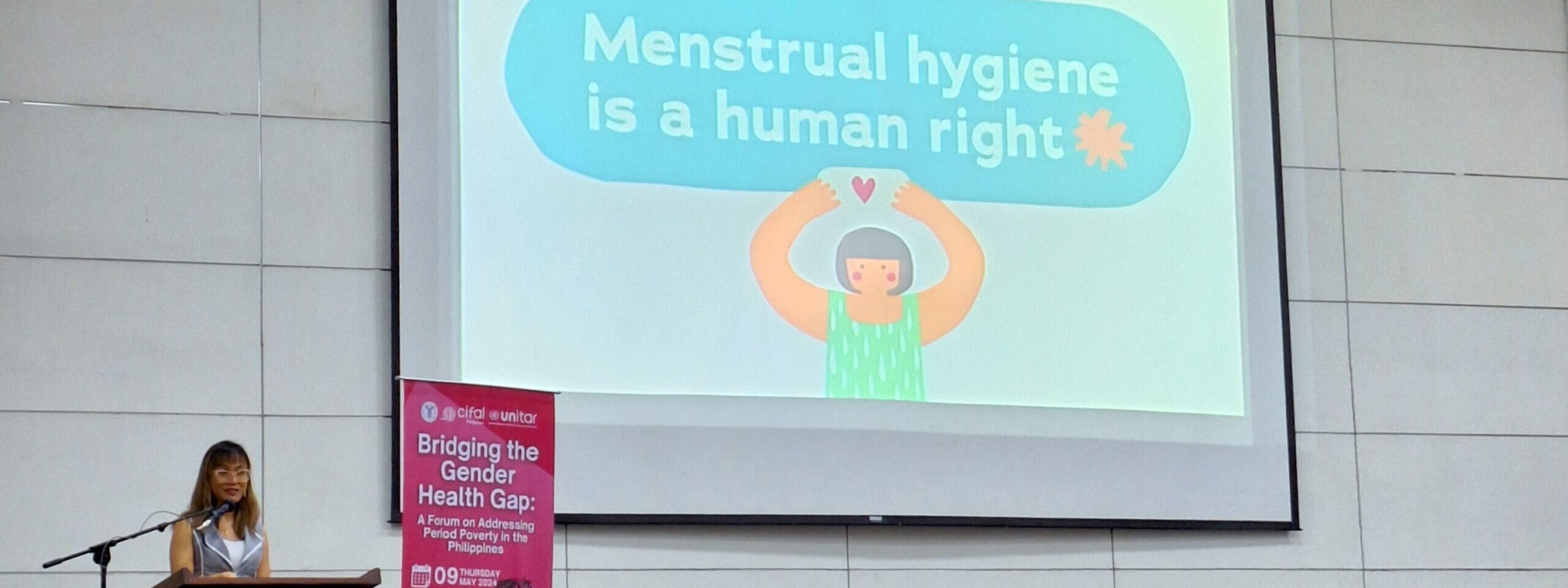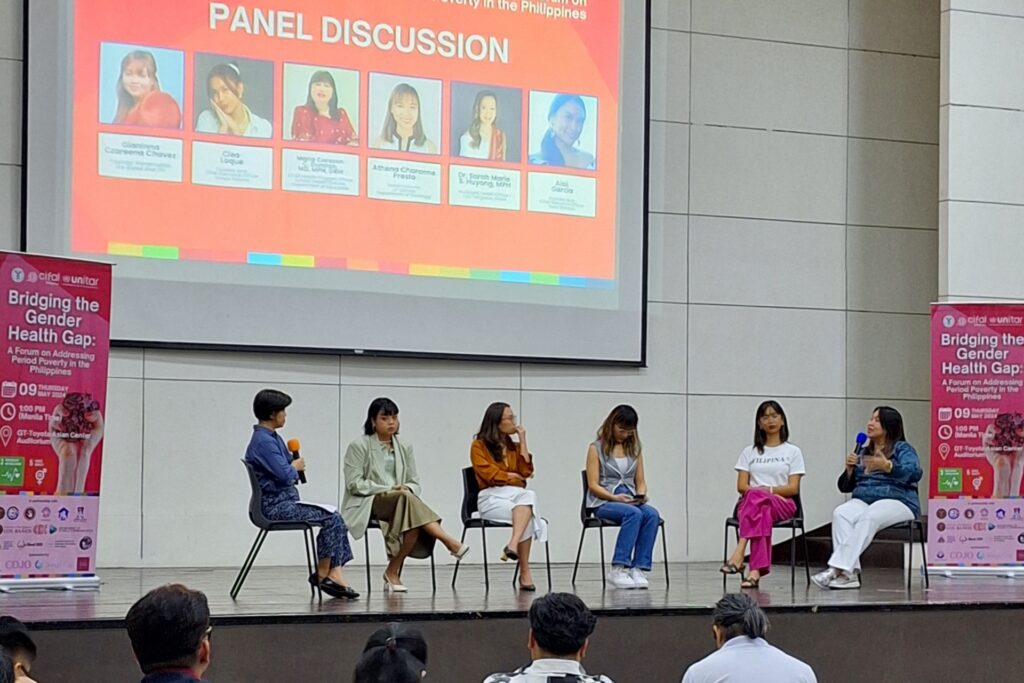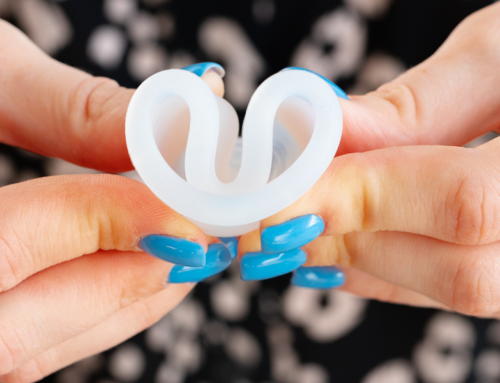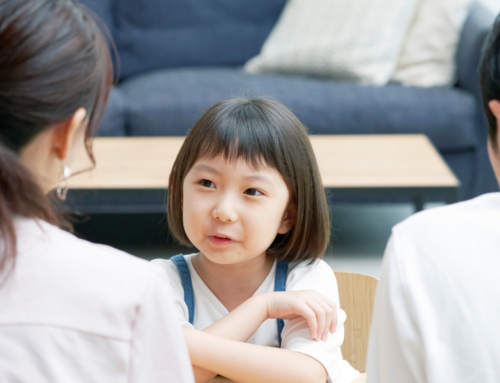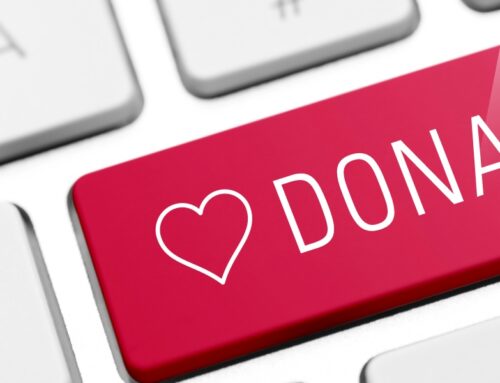Sinaya Cup was a proud sponsor of “Bridging the Gender Health Gap: A Forum on Addressing Period Poverty in the Philippines” held at the GT-Toyota Asian Center in UP Diliman last May 9.
Organized by CIFAL Philippines and attended by period justice advocates and representatives from different sectors, the public forum highlighted the urgency of period poverty in the country in time for Women’s Health Month observed in May, as well as the Menstrual Hygiene Day on May 28.
Here are 6 of the many important things discussed at the event:
1. Period Poverty Goes Beyond Lack of Access to Menstrual Care Products
Gianinna Czareena Chavez, founder of the We Bleed Red Movement, shared that her organization defines period poverty as the “lack of discourse, information, and education on the importance of menstrual health and hygiene.”
Moreover, it is the “lack of or the misrepresentation of menstruation in all forms of media and it is the continuous cultural shaming and silencing of menstruation in both public and private spaces.”
This definition was echoed throughout the event, as other speakers and participants shed light on other issues that fall under period poverty, including the different types of discrimination experienced by menstruating individuals.
2. There’s a Need for Updated and Sizable Data on Menstruating Individuals in the Country
Jon Villasenor, WASH specialist at UNICEF Philippines, said that while we have come so far “at least in terms of recognizing that there is a problem,” there’s still a lot of work to be done.
He then pointed out that data on menstruating individuals in the country remain lacking. Some private companies have exerted effort in gathering such data, but they are “not sizable.”
No wonder, in his proposed key actions toward period justice, he said we need updated data on menstrual health management.
3. We Can Start by Making Use of the Resources Provided by the Government
Dr. Maria Corazon Dumlao, chief health program officer of the Department of Education School Health Division, presented some of the flagship school health programs implemented by the department like WASH in Schools Program and the Adolescent Reproductive Health Program.
She also discussed how DepEd incorporates menstrual health management into the educational system and added that there are actually reports available to the public about the implementation of programs as such.
4. It’s Important to Involve Menstruating Individuals When Creating Programs for Their Benefit
Dr. Sarah Marie Huyong, municipal health officer of Tangalan, Aklan, talked about how her municipality worked with local government unit workers in an attempt to address period poverty.
According to her, the municipality started offering work-from-home arrangements for staff members who are on their periods and gave away free menstrual management products to them.
Dr. Huyong also said they asked these employees about what products they wanted. This was to ensure that they would really be able to use whatever would be provided to them.
5. We Should Talk About the Issue More
Athena Charanne Presto, senior lecturer at the UP Diliman Department of Sociology, talked about the absence of laws or policies that directly tackle period poverty in the country.
She noted that policymakers still do not realize how urgent period poverty is, and that is why we need to talk about the issue more openly, as it would help pressure them to investigate it.
Of course, when talking about the issue, it is also best to normalize the use of correct terms instead of being afraid to use them.
During the panel discussion, Dr. Maria Dulce F. Natividad, assistant professor at the UP Asian Center and moderator of the forum, even challenged everyone at the venue to say the word “regla,” which means “period” in Filipino, aloud.
6. Involving Men and Boys in the Fight Can Make a Difference
One of the ideas frequently brought up during the panel discussion at the event was the importance of also involving men and boys in the fight against period poverty since, according to the panel members, they are often women and girls’ first support systems.


